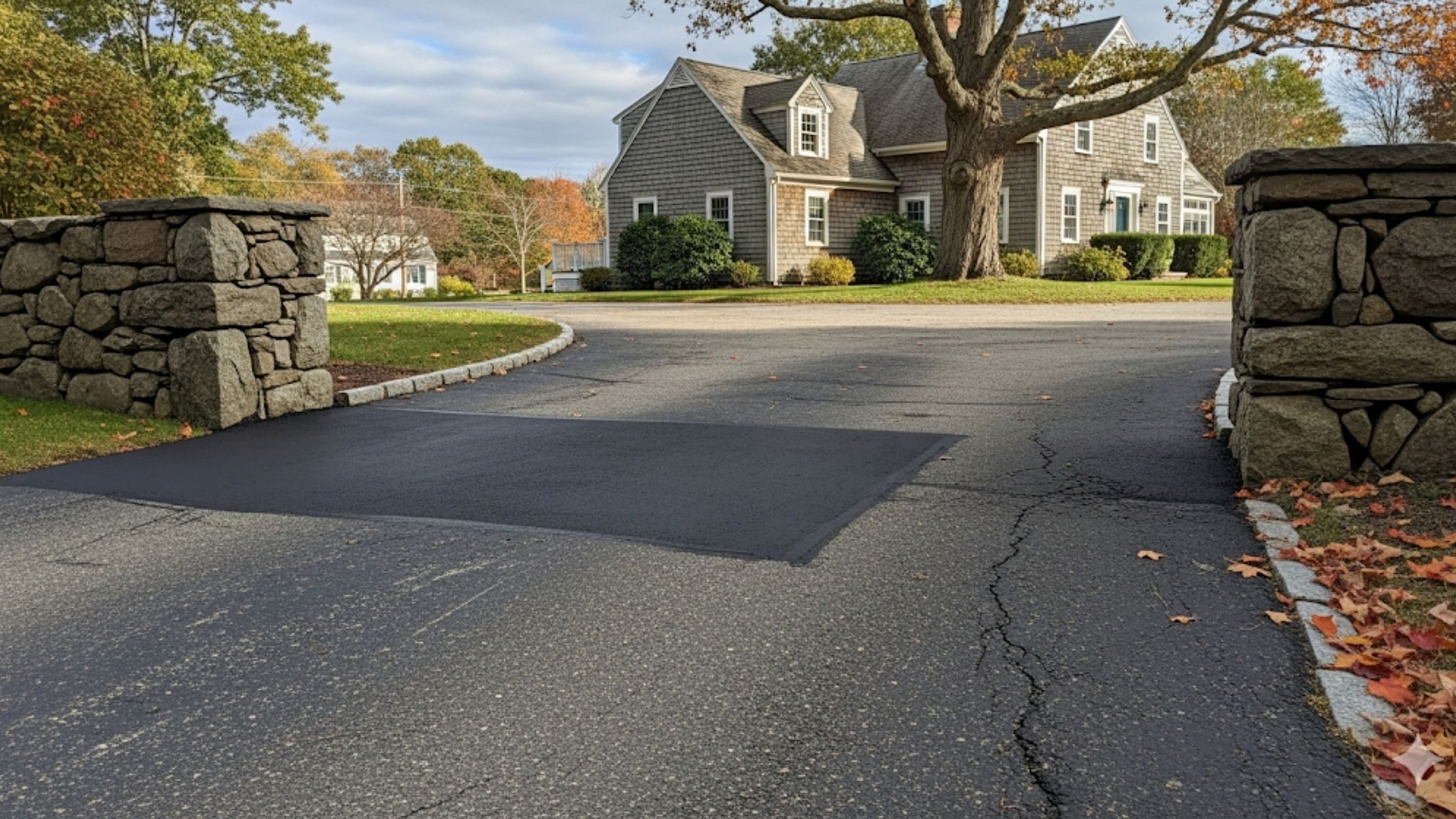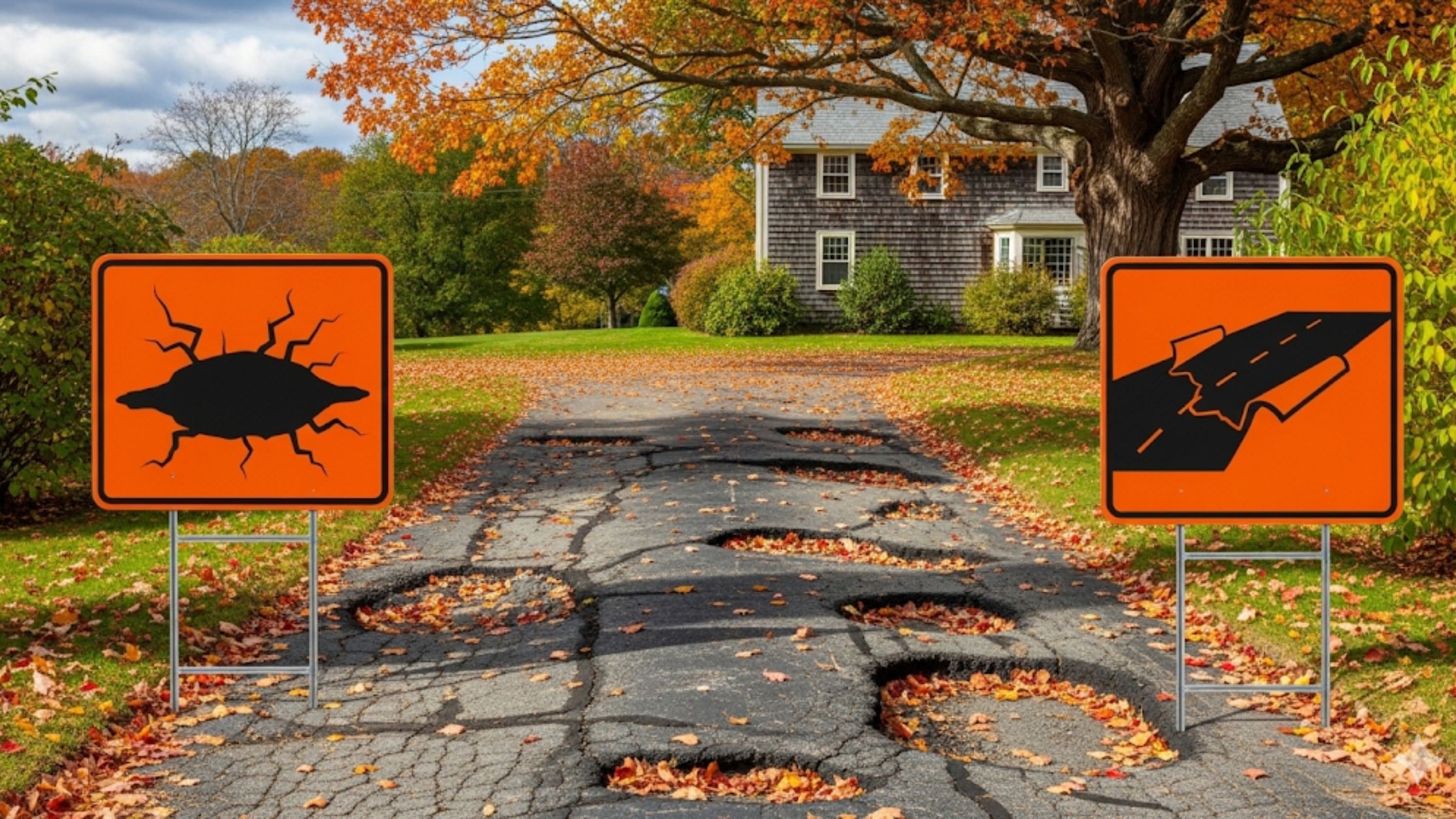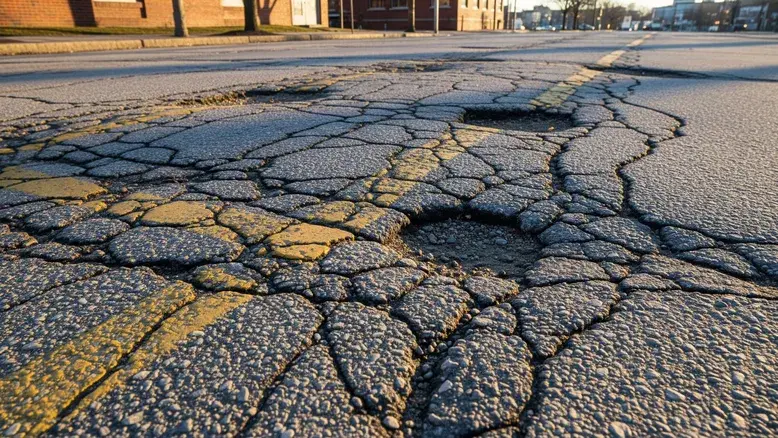When you hire asphalt repair contractors in Massachusetts, one of the first questions you might have is: Can I use my driveway right away? The short answer is no. After an asphalt repair, you should wait at least 24 to 72 hours before driving on it. For parking, the wait is even longer, usually 5 to 7 days.
Most homeowners in Massachusetts will ask you to be patient and wait until your asphalt is dry. Many New England homeowners report that waiting a full week before parking made their driveways last much longer. A few even shared stories of ruining fresh asphalt by driving too soon, these mistakes that cost them hundreds in repairs.
But why is it so? Let’s break down why this waiting period matters, what factors affect it, and how to protect your investment.
Why You Shouldn’t Use Your Driveway Immediately
Fresh asphalt looks solid once it’s spread and smoothed out, but don’t be fooled. It takes time to harden. During the first few days, the surface is soft and can easily be damaged. If you drive or park too soon, you risk leaving tire marks, dents, or cracks that will shorten the life of your driveway.
Think of it like baking bread. It may look ready when it comes out of the oven, but it needs time to cool and set. Asphalt works the same way. The curing process is what makes the repair strong enough to handle vehicles and heavy loads.
Asphalt Repair Contractors in Massachusetts Guidelines
Here are the general guidelines most local asphalt contractors in Massachusetts recommend:
- Walking: You can usually walk on the repaired area after 24 hours.
- Light driving: Wait at least 48 to 72 hours before driving.
- Parking: Hold off for 5 to 7 days before parking.
Seventy-two hours is considered the minimum safe waiting period for driving, while parking needs more time because of the constant weight and pressure.
Weather That Cures The Asphalt Fastest
Massachusetts weather plays a big role in how your driveway sets. Here, winters are cold and snowy, while summers are hot and humid. When you repair asphalt in your driveway in winter, cold air helps the asphalt cure faster. However, you’ll need to be extra careful about snow removal. Avoid using metal shovels that can scrape the surface.
On the other hand, in summer, the heat slows down. Even after 72 hours, asphalt can feel soft under the sun. Be extra cautious about parking during heat waves.
To avoid any issues and get the best results, many experts say fall is the best season. The mild temperatures and dry air create ideal curing conditions.
Factors That Affect Curing Time
Not every repair cures at the same speed. Several conditions can make the process faster or slower.
- Temperature
Cooler, drier weather helps asphalt cure faster. In hot and humid Massachusetts summers, the process can slow down. Asphalt softens under heat, so it takes longer to set properly. That’s why spring and fall are often the best times for repairs.
- Thickness
If the repair involves a thick asphalt layer, expect a longer wait. The top may feel hard, but the base layers can stay soft for days.
- Sunlight
Direct sunlight can help the surface harden quickly. However, shade or cloudy conditions can slow the process. Even if the top looks ready, the bottom layers might still be too weak to handle weight.
Why Waiting Is So Important
Waiting isn’t just about avoiding surface marks. It’s about protecting your driveway’s future.
- Preventing Damage
Driving too soon can cause permanent ruts and dents. These flaws allow water to seep in, which leads to cracks and potholes during freezing Massachusetts winters.
- Ensuring Durability
When asphalt gets enough time to cure, it becomes stronger and more flexible. This means it can withstand pressure, snowplows, and heavy vehicles for years without breaking down.
What to Do During the Waiting Period
While you wait, there are a few things any asphalt company in Massachusetts asks you to do to keep the area safe and protected.
- Block off the driveway.
Use cones, tape, or even chairs to remind yourself and others not to drive on it. Delivery drivers and visitors may not realize it’s fresh.
- Avoid foot traffic if possible.
Walking is usually safe after 24 hours, but high heels, bicycles, or skateboards can still leave marks early on.
- Keep heavy equipment away.
Don’t park trailers, dumpsters, or construction vehicles on the surface for at least 7 days. These put extra pressure on fresh asphalt.
The Bottom Line
Asphalt repairs need time to cure. Rushing the process may save you a few days of waiting, but it could cost you years of durability. Whether you live in Boston, Worcester, or a small town in Western Massachusetts, the advice is the same: be patient. If you give your driveway time to set, you’ll enjoy a smoother, stronger, and longer-lasting surface.
When in doubt, ask your asphalt contractors in Massachusetts for guidance. They know the climate, the materials, and the best practices to keep your driveway in top shape.
Speaking of experts, protect your driveway the right way with The SealCoating Guys. Our licensed crews handle everything within one day. From sealcoating and crack filling to snow plowing and line striping, our team can handle it all. Don’t risk damaging fresh asphalt by driving too soon.
Call 413-252-9170 now to talk directly with a crew lead, get a free quote, and keep your pavement strong all year long.
FAQs
1. Can I drive on asphalt repairs during cold Massachusetts winters?
Cold weather helps asphalt cure faster, but snow, salt, and plows can still damage it. Most asphalt repair contractors in Massachusetts suggest waiting the full 72 hours before driving, even in freezing temperatures, to protect the new surface.
2. Will rain ruin my asphalt repair in Massachusetts?
Light rain after the asphalt has cooled for a few hours usually won’t harm it. But heavy rain during or right after repair can wash away the sealer or weaken the surface. Contractors often check Massachusetts forecasts to schedule jobs on dry days.
3. How long will a repaired asphalt driveway last in Massachusetts?
With proper curing, sealcoating, and regular crack filling, a repaired driveway can last 10-25 years in Massachusetts. Local asphalt contractors recommend sealing every 2–3 years to protect against harsh winters, salt, and heavy use.
4. Can snow blowers or shovels damage fresh asphalt repairs?
Yes. Metal shovels and blower blades can scrape soft asphalt within the first week. After repair, use plastic shovels and be careful with snow equipment until the surface has fully cured and hardened.
5. Do I need to sealcoat right after an asphalt repair?
Not right away. Sealcoating should be done after the asphalt has fully cured, usually within 6–12 months. This protects the surface from Massachusetts weather and keeps your driveway looking new longer.






.webp)

.svg)



